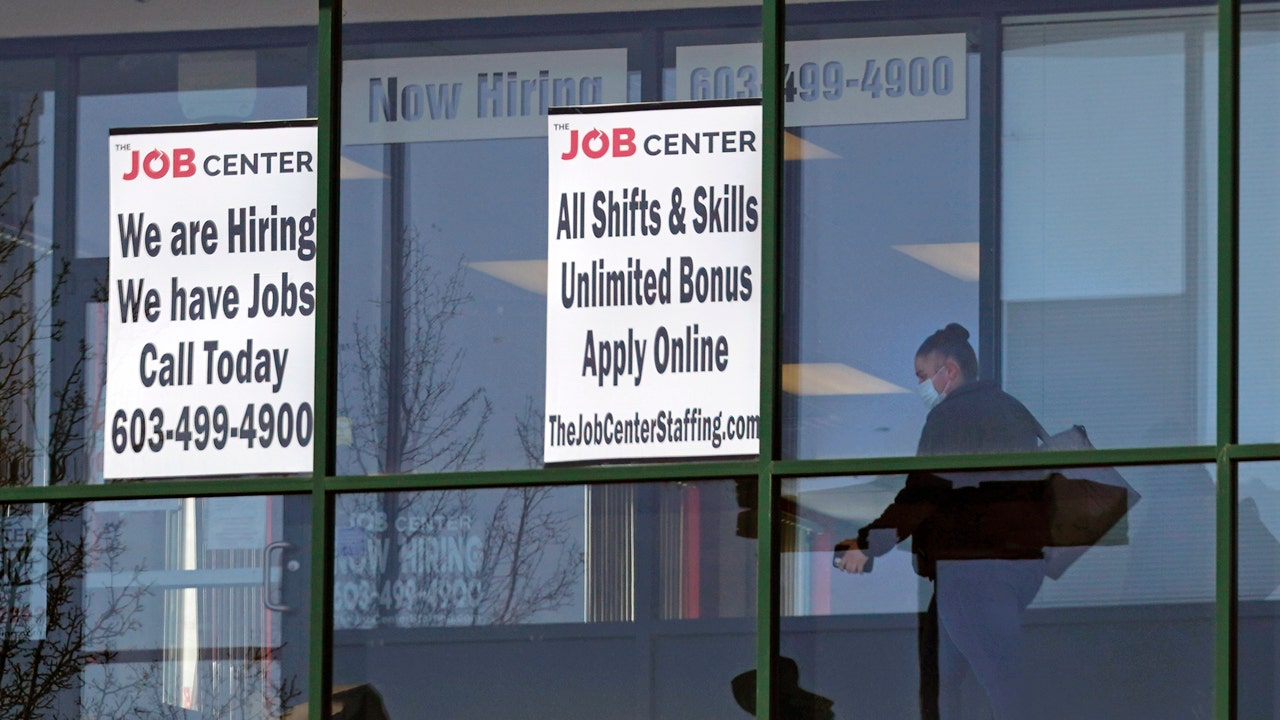 After April’s jobs report fell short of predictions and unemployment ticked up for the first time in the last year, some politicians and policymakers, particularly conservatives, called for an end to the generous unemployment insurance (UI) benefits that have been place since the beginning of the COVID-19 pandemic.1
After April’s jobs report fell short of predictions and unemployment ticked up for the first time in the last year, some politicians and policymakers, particularly conservatives, called for an end to the generous unemployment insurance (UI) benefits that have been place since the beginning of the COVID-19 pandemic.1
Although federal pandemic-related UI benefits are set to cease in September 2021, the majority of Republican-led states have set expiration dates between mid-June and early July. For example, Alabama, Idaho, Indiana, New Hampshire, North Dakota, West Virginia, and Wyoming will end COVID-19-related UI benefits the week ending June 19.2 So far, no Democrat-led states have sought to end benefits early.
In March 2020, in response to the rise in unemployment due to the pandemic, Congress passed several emergency UI benefits programs designed to help workers maintain financial security as “non-essential” businesses closed due to stay-at-home orders.3 Subsequent legislation, most recently the American Rescue Plan Act, extended unemployment insurance (UI) benefits by expanding the number of eligible workers, increasing the number of weeks workers are eligible, suspending the requirement to look for work, and providing a federally funded $300 bonus in weekly benefits beyond which workers would normally qualify.4
Economists and policymakers have studied the effects of UI on the economy for decades. One side has concluded that bolstered and extended UI benefits in a recession keep the economy from spiraling downward and should not be removed until the economy is clearly recovering. The other side claims that generous extended UI benefits can expand recessions and keep people from going back to work, as they make it more profitable to collect unemployment, particularly in low-wage jobs.5 As states are removing COVID-19-related restrictions and policymakers are working to develop strategies that continue the economic recovery, this unemployment debate has surfaced again. This issue is important because approximately 20 million Americans are still receiving UI benefits, and changes in policy could have a significant effect on them.6
Conservative lawmakers and business owners generally agree that now is the time to reduce UI benefits. Business owners, particularly those paying lower wages, have reported difficulty attracting employees despite offering hiring bonuses and higher wages than have been normal in industries such as food service.7 Industry giants such as Amazon and McDonald’s may be able to absorb the extra cost of labor, but small businesses such as independently owned restaurants already operate on razor-thin margins and risk going out of business. They argue that it is unwise policy to continue to pay Americans, and pay them handsomely, to stay home from work when vaccines are widely available and the economy is ready to fully reopen.
LISTEN: Representative Dusty Johnson, R-S.D., explains his stance on unemployment benefits
Liberal policymakers and labor unions are seeking to keep the extended unemployment insurance benefits until the economic recovery is stronger and the pandemic is better contained.8 Food service and warehouse workers have seen the economic disruption caused by the pandemic as an opportunity to demand higher wages and better working conditions.9 And, a Census Bureau survey reported that 4.2 million workers are not returning to their jobs due to fears of the coronavirus.10 Americans’ hesitancy to return to work may actually be pushing wages higher, as businesses compete for a limited pool of employees who may be unwilling to go back to the status quo even after the pandemic is over.11 Progressives and workers’ rights organizations herald this shift in employer-employee power as a step toward more equitable treatment of low-wage workers and a silver lining in a recession that has been devastating for Americans.12
Discussion Questions
- How has unemployment due to the pandemic affected your community?
- What goals do you think conservatives are pursuing? What goals are liberals pursuing?
- What values do you think conservatives are prioritizing? What values are liberals prioritizing?
- Which side of the unemployment debate over insurance benefits do you support? Why?
As always, we encourage you to join the discussion with your comments or questions below!
Sources
Featured Image Credit: Charles Krupa/AP
[1] New York Times: https://www.nytimes.com/2021/05/07/business/economy/jobs-report-april-2021.html
[2] National Law Review: https://www.natlawreview.com/article/unemployment-insurance-system-update-part-iii-additional-states-opting-out-federal
[3] U.S. Department of Labor: https://www.dol.gov/coronavirus/unemployment-insurance
[4] Center on Budget Policy and Priorities: https://www.cbpp.org/research/economy/how-many-weeks-of-unemployment-compensation-are-available
[5] New York Times: https://www.nytimes.com/2020/09/10/business/economy/unemployment-benefits-hiring.html
[6] Brookings Institution: https://www.brookings.edu/podcast-episode/congress-extended-unemployment-benefits-what-should-come-next/
[7] New York Times: https://www.nytimes.com/2021/05/13/business/mcdonalds-wage-increase.html
[8] New York Times: https://www.nytimes.com/2021/05/07/business/economy/jobs-report-april-2021.html
[9] ABC News: https://abcnews.go.com/US/restaurant-workers-protest-poor-working-conditions-low-wages/story?id=77599754
[10] Wall Street Journal: https://www.wsj.com/articles/the-other-reason-the-labor-force-is-shrunken-fear-of-covid-19-11618163017
[11] Marketplace.org: https://www.marketplace.org/2021/05/13/employers-try-raising-wages-attract-workers/
[12] Center for Employment Equity: https://www.umass.edu/employmentequity/covid-19-recession-opportunity-reform-our-low-wage-economy








